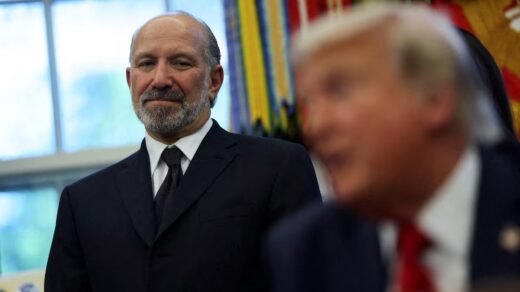
On Monday’s cabinet reshuffle, David Cameron was brought in as foreign secretary, with James Cleverly replacing Suella Braverman as home secretary. This marked the first time a former UK prime minister has returned to a cabinet since 1970, when Alec Douglas-Home also returned as Foreign Secretary after serving as Prime Minister from 1963 to 1964. The backdrop of this reshuffle stemmed from tensions between Braverman and Sunak, who had begun to become a burden for Downing Street with her antagonistic behavior, the most recent of which included accusing the Metropolitan Police of applying a “double standard” to its policing of protests.
The letter Braverman penned subsequently accused Sunak of ‘betrayal’ and ‘irresponsibility’, another blow to the unity of a Conservative party that has seen its government since the 2019 election undermined by countless scandals and infighting. In the face of this letter, Sunak will feel vindicated in his decision to reorient himself to the center. Faced with a 20 point gap with Labor and an increasingly toxic relationship with the right-wing of the party, in sacking the right’s standard-bearer Sunak has assumed a new strategy; surrounding himself with those considered more moderate, which has included notable appointments such as Jeremy Hunt, Laura Trott, Oliver Dowden and now David Cameron.
Ministers remarked that “There was a real buzz. He was fully engaged, even though he’d only been in the job for two minutes” and that” “He knew exactly how to direct the debate”. This is exactly the reaction that Sunak would have been hoping for, someone with both experience and the leadership to re-energize a government which has hopes of surmounting the upcoming election, but thus far has been rather flaccid and uninspiring.
As foreign secretary, he will have his plate full with the Gaza conflict as well as the Russo-Ukrainian war, and has already travelled to Kyiv for his first trip as foreign secretary. However, his premiership was troubled with a litany of foreign affairs mishaps, ranging from the intervention in Libya to what he has called his ‘biggest mistake’, and Brexit. His appointment carries connotations of a shift to orthodoxy and sensibility and his handling of the next few months will be an important test not only for his own reputation but for the fate of Sunak’s government. While moderate conservatives and liberals will hail this appointment as a bulwark against populism, it could also serve as a double-edged sword, not only for Sunak’s government but for the future of moderate conservatives in the Tory party.
If Sunak does lose the upcoming election, the post-mortem will most likely result in finger blaming Sunak’s betrayal of the right. If the right can own the narrative of defeat, they will be able to blame the center-right and moderate conservatives for the loss. This could result in a dangerous slide to the same policies which made the Conservatives unpalatable for the electorate. Sunak has made his strategy clear, but for the sake of the future of British conservatism, and even British politics in general, should hope a loss will not compel future leaders to champion assertive stances on immigration, leaving the ECHR and UN refugee convention, and criticizing ‘elite’ institutions and multiculturalism.
Written by Sarp Basaran


